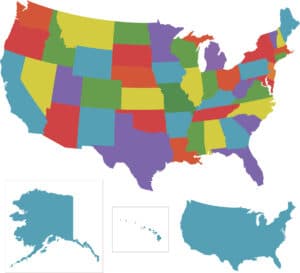Filing for Divorce When You and Your Spouse Live in Different States Can Be Tricky but We Can Help
Posted on: March 17, 2022
Do you know how to file for divorce if you and your spouse married in California but one of you no longer resides here? Do you have to file separately in each state? Is it possible to complete the procedure alone in California? Who makes the decision on where the divorce will take place?
Contacting Law Office of Michael L. Fell at (949) 585-9055 and speaking with a divorce attorney is the best method to receive answers to your particular questions concerning your case. Continue reading to find out the answers to some common queries concerning these sorts of instances.
To file in California, do both spouses have to meet the residency requirements?
No. Only one spouse is capable of doing so. It might be the individual who applies for divorce or the one who receives the divorce petition. California has a six-month residence requirement. After a person has a physical presence in the state and a financial commitment to the state, they are granted residency. For the most part, this refers to when they begin paying taxes or registering their vehicle in California.
In addition, the California resident spouse must have lived in the county where they are filing for at least three months.
How do we choose which state to divorce in?
There are several considerations to consider when determining where to get divorced if you live in California but your spouse lives in another state. Consider if you’ve met all of the requirements in both jurisdictions, and whether state has the most advantageous divorce rules. If you have children, it’s probably advisable to file for divorce in the state where you’ll have primary custody.
You should examine how each states deal with property partition. California is one of nine states where property is considered community property, meaning both spouses are entitled to half of all assets. The majority of other states use an equitable distribution system, which might benefit you or hurt you based on a variety of criteria. Your divorce lawyer can assist you in determining where you should divorce.
What happens if we can’t decide which state we should divorce in?
If you and your spouse cannot agree on where the divorce should be conducted and cannot reach an agreement, the state in which the papers were filed first will be the state in which the divorce will be processed. It may be worthwhile to file sooner rather than later for this reason alone.
Contact Law Office of Michael L. Fell at (949) 585-9055 for a free legal consultation if you have any more concerns concerning this specific divorce issue or other situations impacting divorce.





